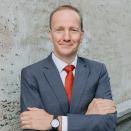Guntram Wolff has served as the CEO of the German Council on Foreign Relations (DGAP) from August 2022 until February 2024. From 2013 to 2022, he was director of Bruegel, a Brussels-based institute on economic policy in Europe, which he developed into a leading global think tank. His research focuses on European political economy, economic statecraft, geoeconomics, climate policy and Germany’s geopolitical strategy. Since August 2023, he teaches at the Willy Brandt School of Public Policy at the University of Erfurt.
His work has been published in academic journals such as Nature, Science, Nature Communications, Journal of European Public Policy, Journal of Money, Credit, and Banking, European Journal of Political Economy, Climate Policy, Energy Policy, and Foreign Affairs. He was a part time professor at Solvay School of Economics and Management of the Université Libre de Bruxelles.
He is a seasoned public speaker and has participated in and led multiple panels with leading academics, policymakers, and C-level executives. He is often quoted by and contributes op-eds to several global media, including the New York Times, Financial Times, Bloomberg, The Guardian, Frankfurter Allgemeine Zeitung, Le Monde, El Pais, and several other media outlets. In 2020, Business Insider ranked him as one of the 28 most influential power players in Europe.
Since 2013, Wolff has been speaking twice a year to the Economic and Financial Affairs Council (ECOFIN), the informal meeting of the EU’s finance ministers and central bank governors, on a wide variety of topics. From 2012 to 2016, he served as a member of the French prime minister’s Conseil d’Analyse Economique. In 2021, Wolff was appointed to the G20 High Level Independent Panel (HLIP) on Financing the Global Commons for Pandemic Preparedness and Response. In 2018, then IMF managing director Christine Lagarde appointed him to the External Advisory Group on Surveillance, a group mandated to review the International Monetary Fund’s operational priorities through 2025. He is an independent member of the Bulgarian Council of Economic Advisors and a council member of the European Council on Foreign Affairs (ECFR).
From 2008 until 2011, Wolff worked on euro area macroeconomics and euro area governance reform at the European Commission. He began his professional career in the research department of the Deutsche Bundesbank, which he joined after completing his PhD in economics at the University of Bonn.
Personal websites:
www.guntramwolff.net
https://orcid.org/0000-0003-2716-522X
[Last updated: March 2024]
Contributions
Reforming Europe’s Fiscal Architecture
The drive to change the EU’s fiscal rules has fizzled out, an agreement before the June 2024 European elections is unlikely. However, Europe cannot ignore its structural weaknesses forever.
A European Strategy of Economic Statecraft
The EU was built on openness to trade and finance, and not designed to cope with great power competition and the weaponization of interdependence. Now rapid change is needed.
Russia’s War Economy and the Impact of Sanctions on Military Production
With the Russian economy now on a war footing, if the West wants Ukraine to prevail in the war, it will not only have to sustain the delivery of weapons but also further tighten its sanctions regime against Russia.
How Europe Can Shape Changes in the World Economy
The frenetic growth of world trade has been over for some time. Geopolitical risks are now leading to a new order. This by no means heralds a phase of deglobalization—which is empirically unlikely and would be costly economically. The European Union would do well, however, to ensure greater diversification.




